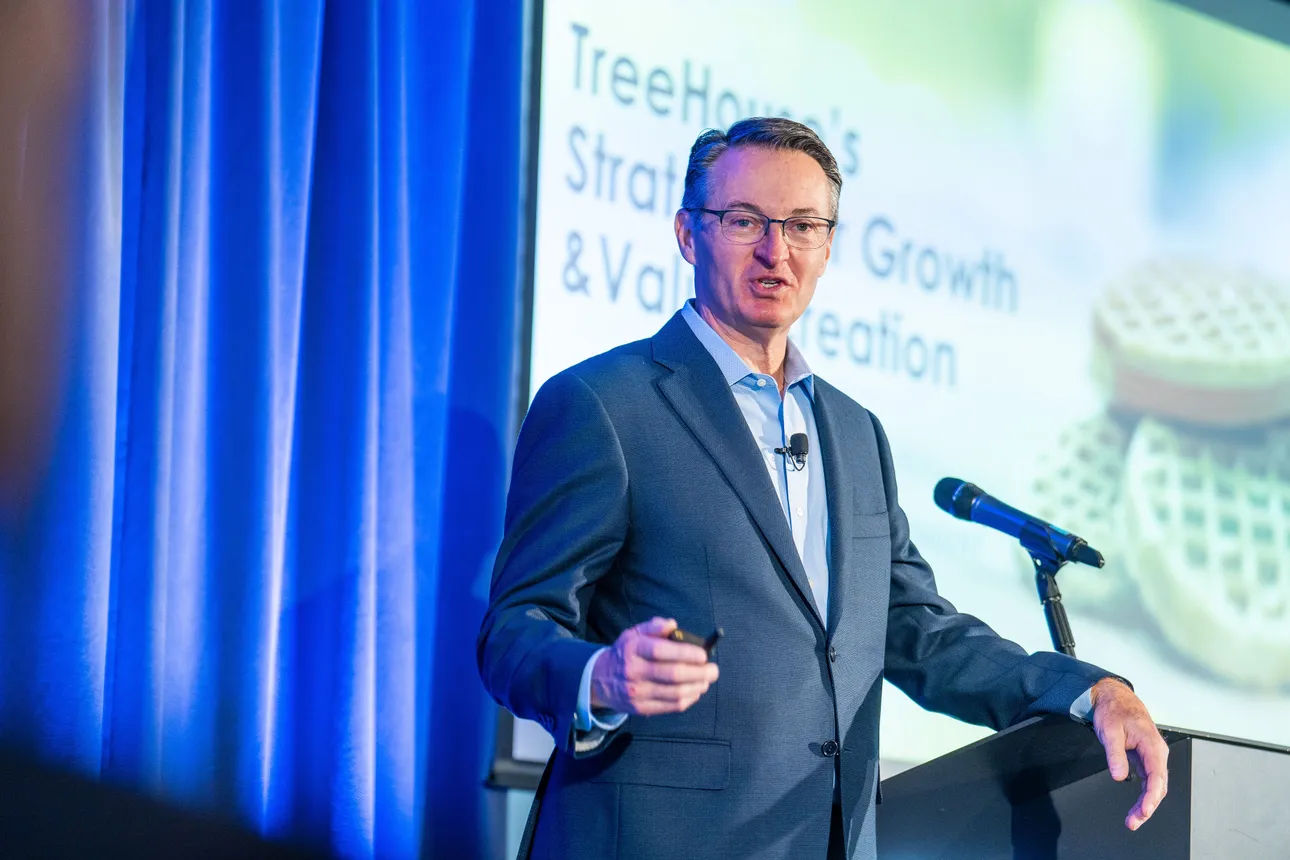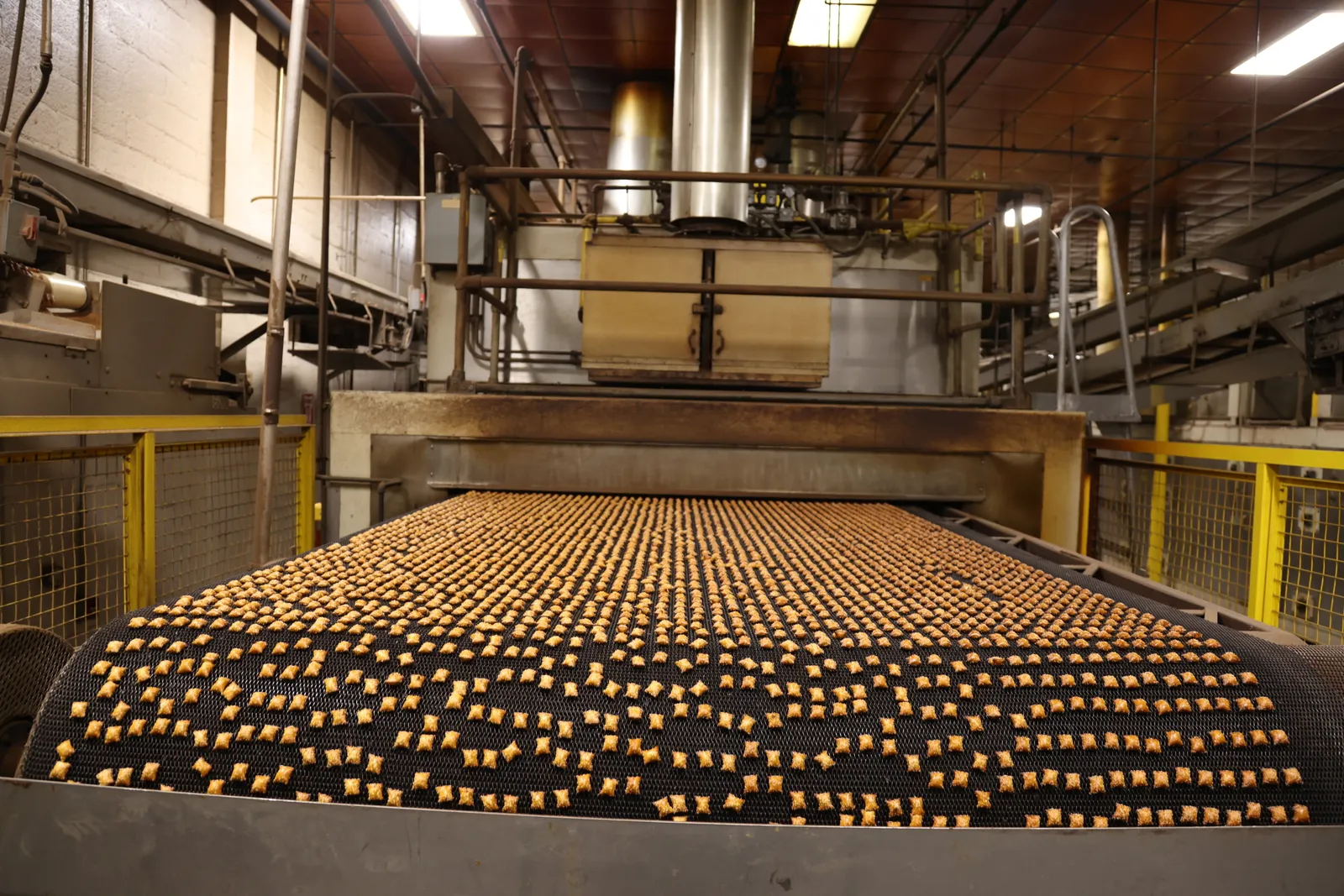TreeHouse Foods has radically transformed itself into a leaner, more focused company that is better positioned to capitalize on the growing demand for private-label offerings from retailers.
“It’s a new TreeHouse. It’s a totally different TreeHouse,” Steve Oakland, TreeHouse’s CEO, said in an interview. “We’re easier to run, and we’re just in very, very different categories that are attractive to our customers.”
This new company stands in sharp contrast to the TreeHouse that existed just five years ago. The Illinois-based company grew into the nation’s largest manufacturer of private-label offerings spanning nearly three dozen product categories following more than 40 mergers.
While the acquisitions gave TreeHouse scale, the complexity saddled the food and beverage maker with inefficiencies in its manufacturing and distribution, gave it control over several low-margin products that suppressed profitability and led to the creation of a disorganized sales force that often confused retailers. As problems mounted, customers started leaving.

In a research note, analysts at UBS echoed skeptical investor sentiment coming into TreeHouse’s first investor day in four years last month about whether the company could hit its long-term revenue and EBITDA goals.
“Coming into the day, the most common question we heard from investors ahead of the event was whether this is achievable given the company's inconsistent track record? We believe that management provided credible building blocks to hit both targets,” UBS said in a separate report following the investor day.
Long runway for growth
Oakland, a former top executive at J.M. Smucker who took over TreeHouse in 2018, has spent much of his tenure rebuilding relationships with retailers, closing plants, reorganizing its sales force and narrowing its product offerings.
His biggest move came last fall when he sold a significant portion of TreeHouse’s meal-prep business to a private-equity firm for $950 million. The unit, which made up about 30% of the company’s sales, included offerings like pasta, red sauces, syrup and pourable dressings. While the division was a reliable cash generator, it was a slow-growing, low-margin business.
Following the sale, TreeHouse was able to firm up its balance sheet and focus its attention on its trendier snacks and beverage portfolio of crackers, pretzels, creamers, coffee and hot cereal, among other items. Oakland said a smaller, more focused TreeHouse can do a better job innovating and responding to the needs of retailers, which in turn will generate more sales for his business.
“The strategy before was breath, broader, more categories. Today it's depth,” Oakland said. “What the customers told me directly is, ‘I don't care if you're in one category or 17 categories. ... Be the best player in that category, and that's who I want to do business with.’”
Today, TreeHouse is a major supplier of private-label offerings to Walmart, Kroger, Costco, Amazon, Target and Aldi. The company, which posted sales in the first quarter of $895 million, expects revenue to grow between 3% and 5% from 2024 to 2027. In comparison, TreeHouse’s portfolio pre-divestiture was expected to grow by 1-2%.
TreeHouse plans to continue looking at M&A as a way to grow its business, but through an entirely different lens than it did before. Rather than entering new product categories, TreeHouse plans to prioritize deals that increase capacity and diversify the items it’s able to supply to retailers in the 17 food and beverage segments it currently operates in.

Just this year, TreeHouse purchased a small pretzel manufacturer that makes private label seasoned pretzels, an addition that complemented its traditional, filled and chocolate covered pretzel business.
It also reached an agreement last month to purchase a coffee facility and non-direct store delivery coffee business from Farmer Brothers for $100 million. The plant brings roasting, grinding, flavoring and blending capabilities to TreeHouse Foods, which already has a deep presence in single-serve pods and ready-to-drink coffees.
“Our focus will be on the [categories] that we're in now, for some period of time,” Oakland said. “We think there's a lot of growth runway in our current categories. And we're building capabilities in those.”
Private label was already growing before the pandemic, but price increases, economic challenges and heightened demand among retailers to expand and improve their presence in the category have provided a significant tailwind for TreeHouse and other manufacturers.
Another benefit for private label, Oakland said, is millennials and Gen Z consumers are showing a greater willingness to purchase these products instead of a brand name. A study released by TreeHouse in March found 45% of consumers in these two demographics have purchased more private-label brands during the last six months.
Even if inflation eases and other macro conditions improve, Oakland remains confident that private label will continue to thrive. He noted the segment has largely grown uninterrupted for nearly two decades. It’s taken extraordinary circumstances, such as the Great Recession or COVID-19 when sales dipped as shoppers used part of their stimulus checks to stock up with recognizable brand names, to temporarily disrupt that momentum.
“The consumer trend is a little bit of a tailwind,” Oakland said. “We changed our strategy and we've got more focus, and we're delivering much better results. And I think we're helping the retailer take advantage of this big opportunity.”
























